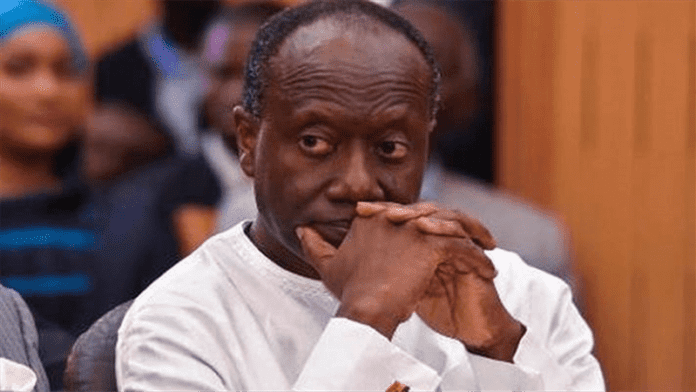The African Foundation for Educational Development (AFFED), a non-governmental organization (NGO) focused on education, has said weaning public universities off the government payroll will have dire consequences.
AFFED in a statement signed by its President Ernest Adade said the tertiary net enrollment rate remains low and stood at 17percent in 2016, fast forward till now, the net enrollment stands at 18 percent. We not made any significant improvement.
The wean off will certainly stagnate and in a worst sense reduce the tertiary intake, the statement added.
“The decision of the Ministry of Finance and government in a broader sense to wean off tertiary institutions from the government pay- roll is in its path to having dire consequences on our tertiary institutions institutions.
“The tertiary net enrollment rate remains low and stood at 17percent in 2016, fast forward till now, the net enrollment stands at 18 percent. We not made any significant improvement. The wean off will certainly stagnate and in a worst sense reduce the tertiary intake.
“Tertiary education would be cost involving, hence neglecting equitable access. Our human capital will be reduced and if care is not taken Ghana’s sustainable growth will be undermined. Let’s not, in an attempt to save our economy take decisions that will cripple out country’s education.”
Meanwhile, the Member of Parliament for Akatsi North, Peter Nortsu-Kotoe has said the Minority in Parliament will prevent the government from carrying out its measure of weaning public universities off the government payroll.
He said if the government carries out this measure, the universities will be forced to generate their own revenue through fees to pay lecturers and staff, a situation he feared will increase the cost of university education in the country.
The Finance Minister Mr Ken Ofori-Atta while announcing measures to deal with the economic challenges facing the country at the moment said at a press conference in Accra on Thursday March 24 that “additionally, the following measures will be implemented over the
medium-term: Wean-off public tertiary institutions from government payroll and provide them with a fixed amount ‘block grant’ instead.
“Pursue reforms to address structural challenges in public financial management including procurement and commitment control, payroll management and human resource management.”
But reacting this development, Mr Nortsu-Kotoe told TV3 that “The Minister announced that with immediate effect they are going to wean off public tertiary institutions from government payroll.
“What it means is that the Universities will have to pay their lecturers and staff. Any organization that is weaned off government payroll you must generate your own revenue. An example is the Environmental Protection Agency (EPA) they were weaned off government payroll so they generate their own revenue and pay their staff. But in the case of the public universities they only charge fees , academic user fees.
“These are very minimal fees because government pays for tuition and that translates into the salaries that they pay to lectures and auxiliary staff. So if you are weaning them off government payroll, that means government is not going to pay their salaries. They say they will give grants. That grant, is it going to cover all the salaries for lecturers and staff? That is not clear.
“It is an attempt by government to let our public tertiary institutions go private so that they will generate their own revenue and pay their staff just as private universities are doing.
“That is going to increase the high cost of university education in the country which many parents will not be able to afford. So we as a minority, we will make sure that we prevent government from carrying out this measures.”
A Professor at the University of Professional Studies, Accra (UPSA), John Mawutor, has said public universities in Ghana have several avenues to generate revenue in order to manage their own affairs.
Professor Mawutor said among other things that “There are several options for the universities to generate revenue.”
Source: 3news.com|Ghana

